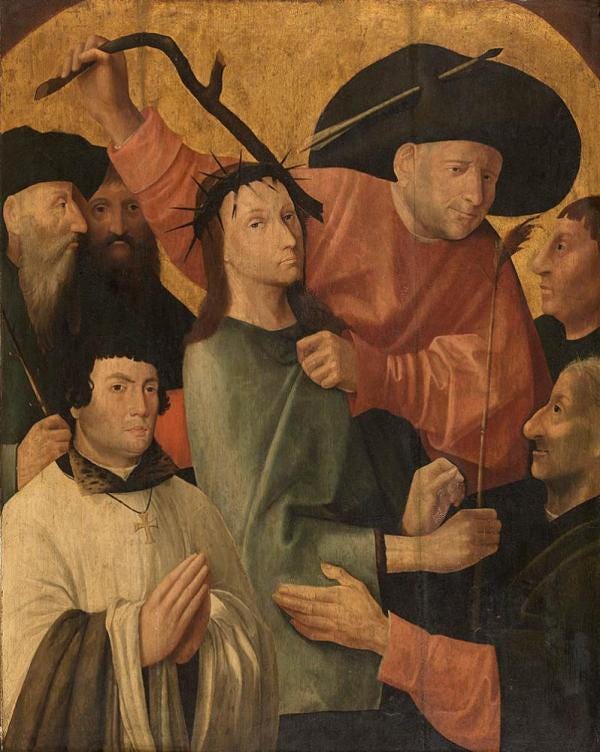The Fear We Dare Not Name
Fear runs deep in the modern soul. It seems to me that its not the fear of death, or failure, or war. It is the fear of Christ.
Not the gentle Christ of coffee mugs and social media posts, the safe Jesus who affirms but never transforms. That Christ is harmless. The world is not afraid of Him. It quotes Him when convenient, paints Him softly, and places Him among other sages.
But the real Christ, the one who rose from the dead, reigns in glory, and breaks into history in the Eucharist, is the one we fear. Because He cannot be managed.
At the heart of modernity lies an unspoken creed: we are gods. We create, define, and control. Through science and self-construction, we have replaced dependence with autonomy. And so, a God who comes uninvited, who commands, who forgives on His own terms is the God who is intolerable.
Christ’s presence exposes our illusion of control. He does not fit our categories; He overturns them. He speaks not as a consultant, but as Lord. “And they were astonished at His teaching, for He taught them as one who had authority” (Mark 1:22).
This is why the world resists Him. Not because He is irrelevant, but because He is dangerously relevant. If Christ is alive, everything changes. We must bow. We must receive. We must die to self. We must surrender.
Even theology, at times, joins in the taming of Jesus. We make Him a therapist, a symbol of inclusion, a mascot for our causes. But Christ is not safe. He is the Lamb who was slain, and the Lion who reigns. He heals and and He commands. He forgives calls us to lose our lives.
And He comes still, not merely spiritually but sacramentally. “Unless you eat the flesh of the Son of Man and drink His blood, you have no life in you” (John 6:53). The world cannot bear that. Because this Christ is not an idea. He is a presence. He enters our space, our bodies, our time and in doing so, He claims everything.
If Christ is Lord, then we are not. And that is the fear beneath all fears. Why? Because it is what I call the terror of dependence. From Eden onward, humanity has rebelled against the grace of receiving. Yet only in receiving can we live.
Sacred Scripture and the saints teach us that holy fear — filial fear, the fear of offending the One we love is the beginning of wisdom. The world’s fear rejects Him; the saint’s fear adores Him.
The question is not whether we will fear. It is whom we will fear.
“Do not fear those who kill the body, but rather fear Him who can destroy both soul and body in hell” (Matt 10:28).
If we fear God rightly, with love and awe, every lesser fear loses its hold. We can speak truth, bear suffering, and live with quiet joy. For the One the world fears has already overcome it (John 16:33).
© 2025, Lawain McNeil, Mission Surrender, LLC.




Another great lesson, Lawain! Thanks so much for sharing..
I think this is true. And it reminds me of Dostoevsky's scene with Jesus and the grand inquisitor. It reminds me of Ratzinger's book _The Yes of Jesus Christ_ and his point that it's ultimately a yes/no when it comes to Jesus. And, Albacete, who riffs on Ratzinger and says: "According to Cardinal Ratzinger, today’s Man is someone for whom Christianity is a past that does not concern him. It is not that the Christian faith’s contribution to history is not acknowledged (approvingly or disapprovingly). Many still see the Christian faith as an important source of values, ethical behavior, and religious or artistic inspiration. What is seen as irrelevant or as unnecessary is the point of departure that defines and specifies the Christian reality, namely, the historical events of the Incarnation, death, and resurrection of Christ." But what if these events can still be accessed today?